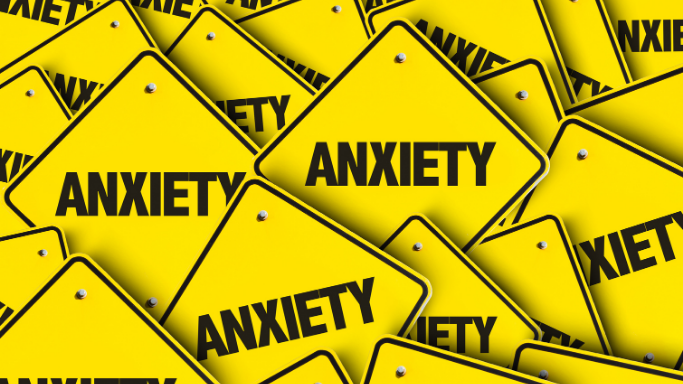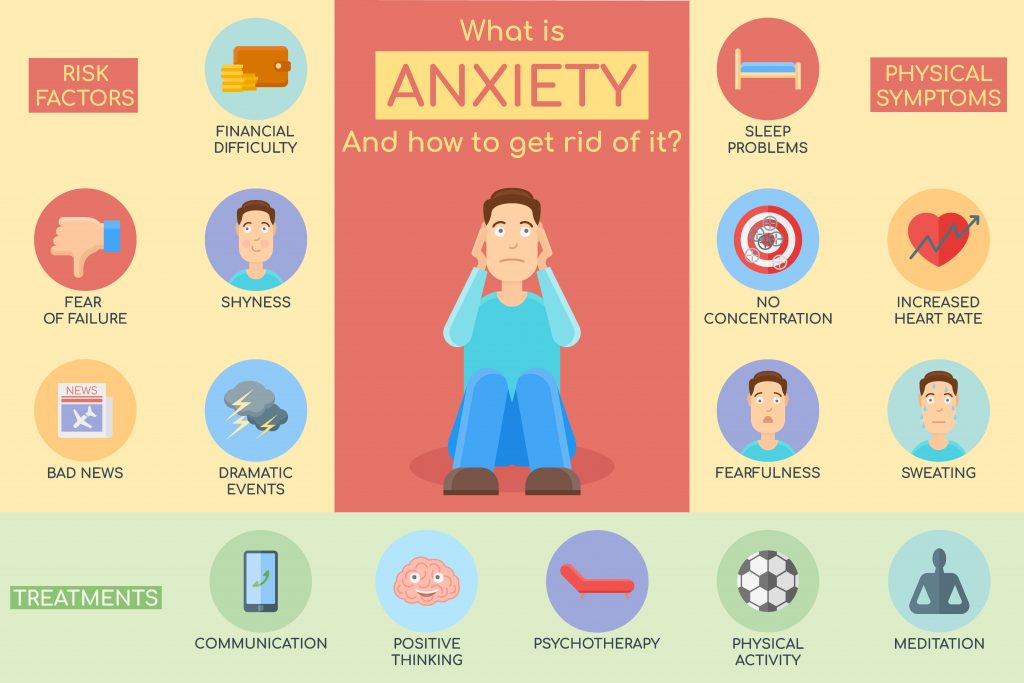5 Signs You May be Suffering from Anxiety (& What To Do About It)


Anxiety is more common than you realize. While you might feel alone in your worries, chances are good many around you are suffering from anxiousness too. According to the National Institute of Mental Health, approximately 40 million adult Americans are plagued by an anxiety disorder (nimh.nih.gov/health/statistics/prevalence/any-anxiety-disorder-among-adults.html). If you are concerned that anxiety might be causing problems in your daily life, there are ways to spot signs of trouble. Review this roundup of common signs of anxiety issues to see if any of these leading indicators are present in your life. You do not have to suffer from your feelings of dread. Help is available to those who live with feelings of anxiety and helplessness.
Digestive Problems
Digestive problems are common among those suffering from anxiety. Whether the cause is your job or your personal life, the resulting stomach issues are the same. If you suffer from nausea or diarrhea on a regular basis, it might be time to look at your overall stress level to see if anxiousness is the cause. Some digestive problems can be traced back to last night’s spicy foods, while others can leave you baffled as to the cause. If you suffer from gastrointestinal issues on a frequent basis, it might be time to consider whether your overall mental health is the root of your problems.

Skin Breakouts/Rashes
Skin irritations are not just for teenagers. Adults suffering from anxiety are often plagued by skin rashes or acne breakouts. While some pimples and skin rashes can be attributed to allergies or a poor diet, many skin inflammations are the result of poorly-managed stress.
Exhaustion
If you are frequently exhausted even after a good night’s sleep, your exhaustion could be the result of stress and anxiety in your personal or professional life. If you experience ongoing episodes of worry and concern, you may not be managing your apprehension appropriately. Eating a healthy diet and getting plenty of sleep shouldn’t leave you feeling tired and fretful.
Headaches
Recurring headaches are another sign that your anxiousness is getting out of control. Dull, throbbing head pain that never seems to go away can make your anxiety worse. You can end up worrying about your headaches and their cause, which makes restlessness and suffering more troublesome.
Aching Muscles
Aching muscles aren’t always the result of strenuous exercise. If your shoulder, lower back, and hip muscles ache even when you have not exercised, you might be carrying your anxiety in your muscles. Tension and a sense of foreboding can cause you to tense your shoulders and back, leading to increased muscle tightness.
If any of these five signs are present, it might be time to seek health and medical advice. Speak to your primary care provider about your concerns and ask for help to manage your anxiety. Your health provider can offer advice on everything from relaxation techniques to anxiety medications. Monitor your symptoms to see if your worries lessen over time and schedule a follow-up visit to discuss your progress. Anxiousness can be managed if you are willing to be proactive. It will take time to feel more in control, but the struggles are worth it if you feel healthier in the end.
Posted In:
Like this post? Don't forget to share it!
MORE RECENT POSTS



